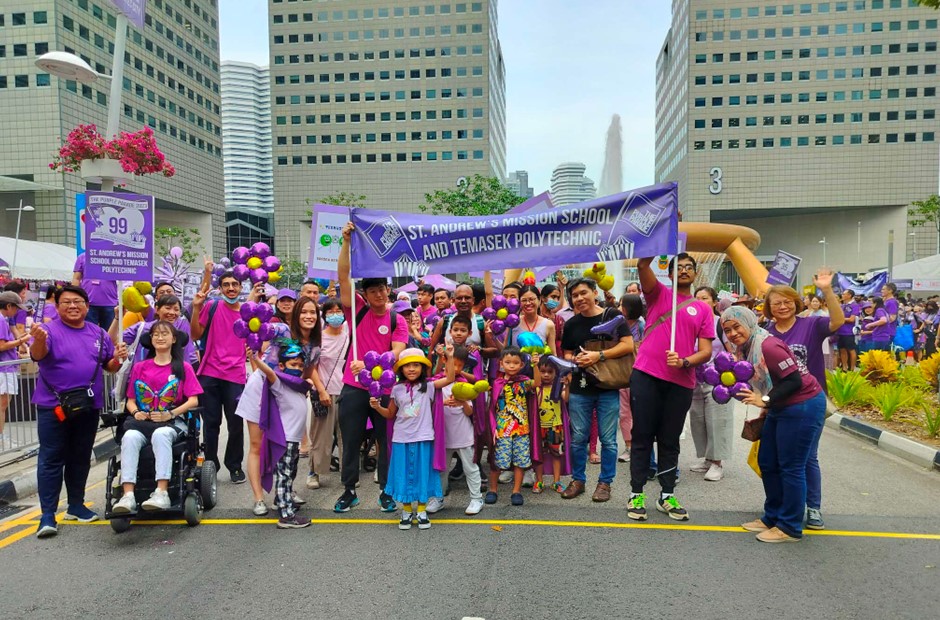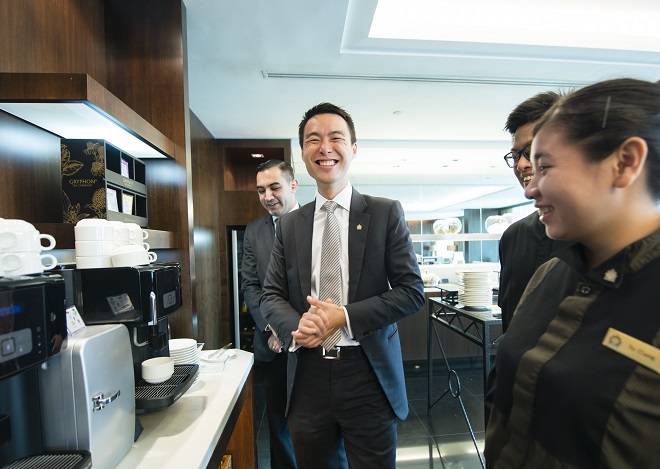We are familiar with the saying that it takes a village to raise a child. But when it comes to children with special needs, it may take more.
Mr Vincent Lim, Vice-Principal (Administration) of St Andrew’s Mission School (SAMS), says special education schools need community support to be able to give the best to their students.
Opened in January 2022, St Andrew’s Mission School (SAMS) is the second Autism Spectrum Disorder – National Curriculum (ASD-NC) school to operate in Singapore after Pathlight School. For a relatively new school, partnerships have been essential in providing diverse opportunities for its students, as well as certain operational needs of the school.
“In the case of a special needs school, the saying ‘It takes a village to raise a child’ is more significant than anywhere else,” says Mr Lim. “If it takes an entire community to provide for the education of our children, then even more so for those with special needs. Our school does not at any point think that we can do it alone.”
To this end, the school has been busy building up partnerships with various organisations. Check out all the interesting ways that these partnerships have been benefitting SAMS students.
Trialling “quiet hour” at Gardens by the Bay
In mid-2023, Gardens by the Bay (GB) had approached SAMS to work with them in making the Gardens an inclusive space for people with special needs. The Gardens has recently started a “quiet hour” for people on the autism spectrum. Held on the last Saturday of every other month, the Flower Dome would open an hour earlier and all music would be turned off.
SAMS students and their parents were invited to trial the “quiet hour” at the Gardens and provide feedback on its implementation. This provided students the rare opportunity to visit the Gardens without its usual crowds. Mr Lim says, “The students had a fantastic time because there was no one else around, they had the entire gardens to themselves. They still remember and talk about it because they don’t normally have the chance to go and experience these things.
“Even for their families, sometimes families with persons with autism don’t want to go out to visit attractions because they feel the whole world judges them. But now they get the opportunity to do so. When you create such opportunities for the child and their family, it impacts them straightaway. The family is able to go out and continue life more normally, and they are very appreciative of it.”
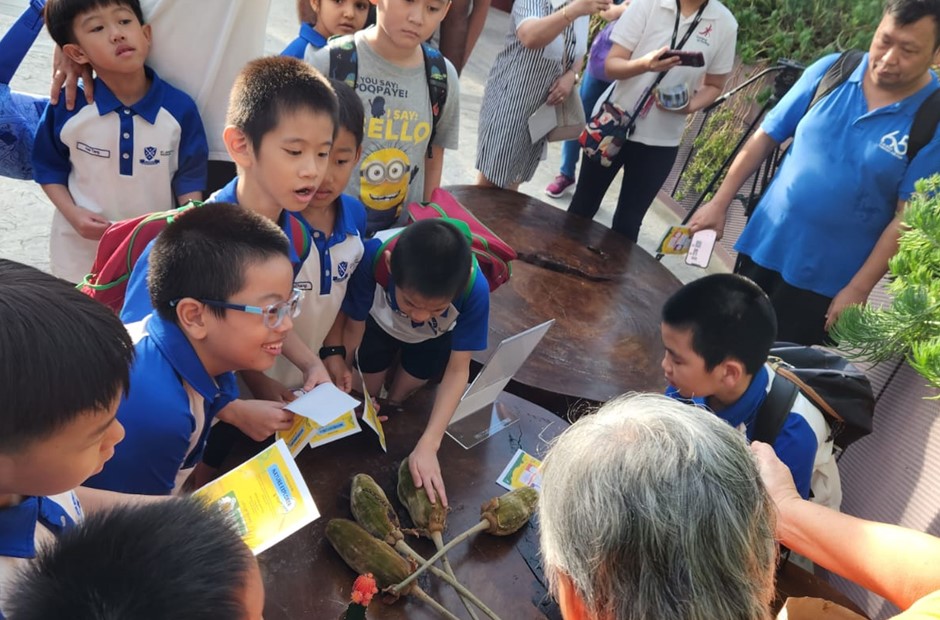
GB also helps in small ways with SAMS’ school garden. It provides advice on the types of plants that are suitable for growing in the SAMS compound, and sends extra plants they have from their exhibitions for SAMS to decorate the school with. “Last year, they sent us 2,000 pots of plants, an entire lorry load. The school was really colourful during that time,” Mr Lim quips.
Interacting with adults with autism in the canteen
Thye Hua Kwan Moral Charities (THKMC) also works with beneficiaries with autism, among other groups of disadvantaged people, and was introduced to SAMS as a potential partner. As SAMS was only operating with one canteen stall, it invited THKMC to start a second stall to cater to the school’s growing student population.
THKMC currently sends five of its ASD beneficiaries, whose ages range from 20 to 27 years old, to operate the stall. This provides them with vocational training and an income. While managed by a job coach, these five beneficiaries do almost everything in the stall from preparing and cooking the food, collecting money, to washing the dishes.
One of the THKMC beneficiaries who works at the stall, Syadina Nur’ain Binte Abdullah, shares, “I get to cook many different types of dishes, and be in charge of payment collection. I also get to travel independently from the THK Home at Sembawang to SAMS, and I really like that freedom.”
Trudy Tay, another beneficiary, says, “I used to enjoy cooking at home, now I’m happy to be able to cook at SAMS and serve the students and teachers here.”
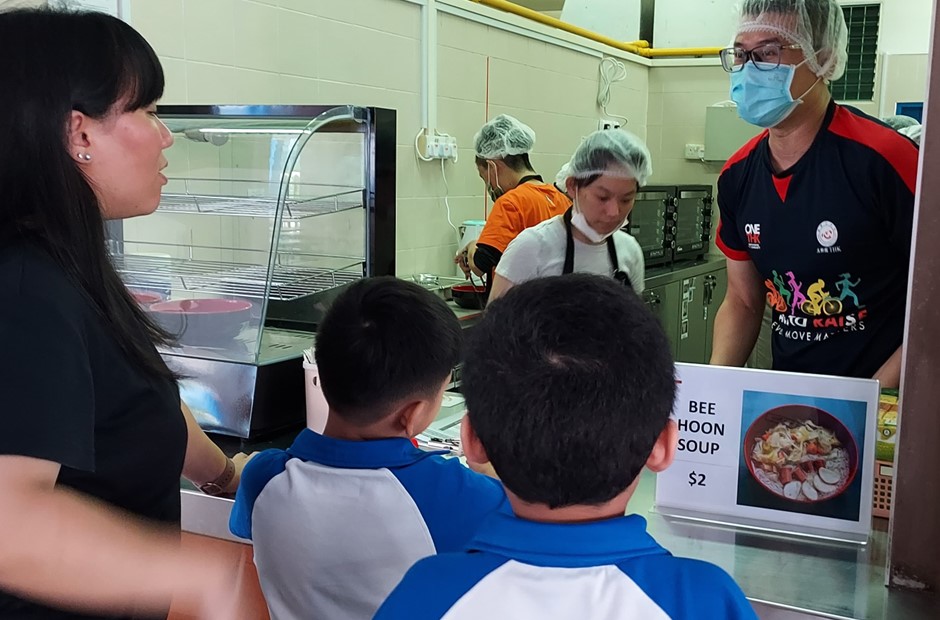
Currently, the school is hoping to have more of such stalls as the enrolment of the school increases.
Attending Purple Parade with Temasek Polytechnic
Temasek Polytechnic (TP) had initially approached SAMS with the purpose of getting its Psychology and Communication Design students to work on projects with the school. As SAMS was preparing its contingent for the 2023 Purple Parade, an annual event that promotes awareness of persons with disabilities, it realised that it was not big enough to form a contingent on its own. It invited TP to be its partner for the Parade, and both schools went together as one contingent.
Apart from TP’s Psychology and Communication Design students, students from SENvocates, an interest group that champions inclusivity for people with special needs, also went along. While most of these students did not have disabilities, there were some with physical disabilities. The contingent thus comprised a diverse range of people from primary school students with autism and their parents, to polytechnic students in wheelchairs.
“This gave both groups of students greater exposure to each other. By meeting and interacting with one another, there is greater understanding and appreciation on both sides for people with different special needs. It makes a big difference to our kids,” Mr Lim shares.
Building a more inclusive community through partnerships
Aside from big organisations, individual partners have also found ways to contribute to the school. An individual who runs an exhibition and events company brings in animal statues to decorate the school compound. “When the kids come to our Open House and see all the animals, they get excited and immediately want to come to our school,” Mr Lim laughs.
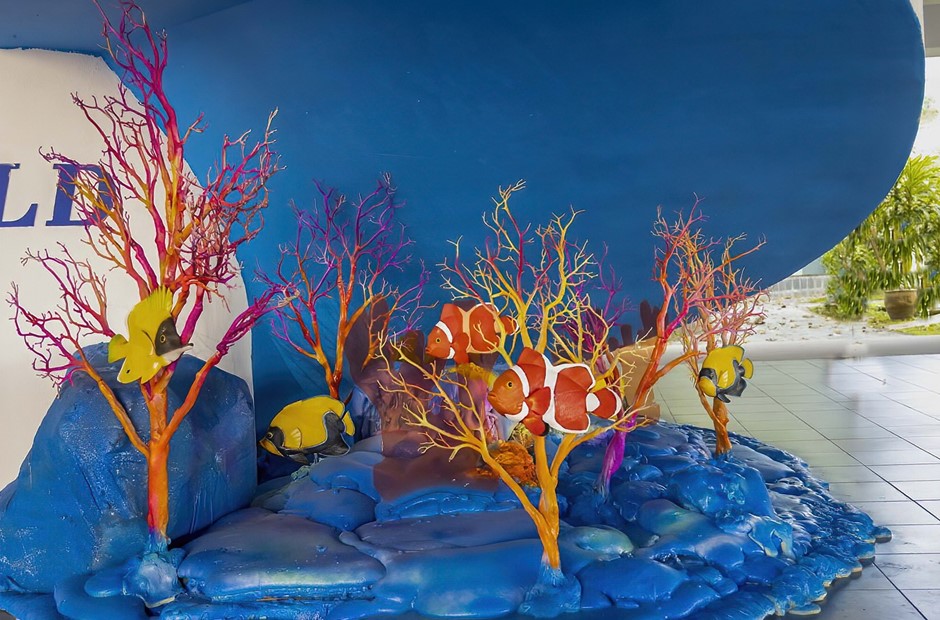
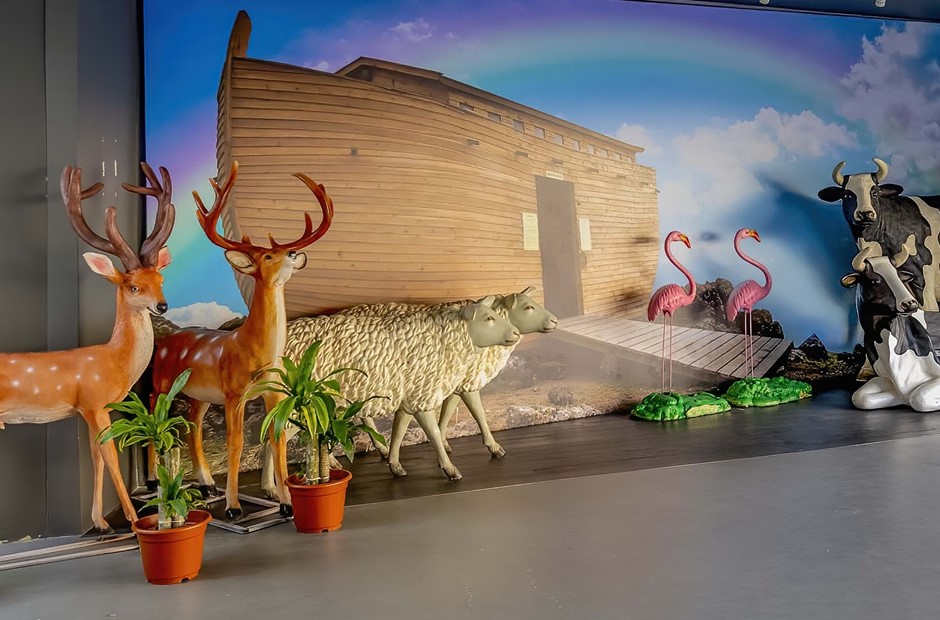
The school’s biggest partner, however, is undoubtedly the parents of students.
Mr Lim shares, “Our parents are very supportive of what the school does. All our school events, like Chinese New Year or Teachers’ Day, are run by them. Parents with specific skills also run small programmes for our students, like how to make playdough. We also had a frogologist come in to teach our students about different types of frogs, and they loved it.”
Reflecting on the importance of school partnerships, Mr Lim adds, “I don’t think we have the last say on the holistic education of our children. Partnerships are important because it opens up opportunities for them. It gives them different perspectives and helps them to get more familiar with people and the real world. Partnerships also help to build inclusivity. When external parties come in and interact with our students, they become more aware and accepting of persons with special needs.”
When asked what advice he would give to those looking to establish school partnerships, Mr Lim shares, “Cultivating a partnership is very relational, it takes time to grow and develop it. Although most of our partners are still very new to us, it has been a great blessing to have so many people come in and help us – even if it’s just part of their corporate social responsibility (CSR).
“There are many organisations in Singapore that are very receptive and prepared to go with you. They might find it difficult to enter our education ecosystem, but when you talk to them, they are actually very open to exploring and discussing things.”



